
Founded by Doug Meckelson the ElderWisdomCircle™ is an award wining online inter-generational program pairing young advice seekers with a network of older adults (“Elders”) who provide empathetic, caring, and supportive advice based on their own life experiences.
Conversations with Wisdom is an every other week feature written by Doug where we learn how the Elder arrived at just the right wisdom to convey and how that wisdom and advice guided the young person.
Doug coaches Elders on how to identify and apply their wisdom to help others and is a recognized authority on the topic. Connect with Doug on Linkedin. This feature is edited by Kate Koening.
It Was Okay to Move On
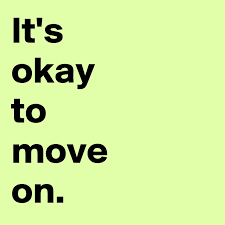
Raven wrote in to Elder Wisdom Circle with conflicted feelings about a friendship that she felt could be something more. She had had a long-distance relationship with this friend in the past until her parents put an end to it, but being apart from them throughout the pandemic only made her feelings stronger. Now, they had reconnected, and it felt just like it had in the past. Raven wanted to tell the friend that she wanted to try a relationship again, but was afraid it might ruin everything, especially since her friend had expressed concerns about long-distance relationships in general.
Elder Susan wrote back to Raven, offering her some advice but also things to think about on her own. She said that it can be easy to fall for someone whose only sides you see are positive; since you’re not with them in-person, you don’t get the chance to see them irritable, mean, or tired. If the relationship is more viable, the goal should be to eventually interact in person, so that the long-distance relationship isn’t just an excuse to escape from forming relationships that could be more present. Susan asked, does Raven plan to meet this person in real life? She also pointed out that it’s possible that, by making comments about long-distance relationships, he was trying to push Raven away, and was ultimately unavailable. Should Raven really spend her time and money on a relationship where the other person did not seem as interested?
I interviewed Raven after she’d received Susan’s letter, and she shared how much it had helped her. She had felt nervous and confused when she wrote in, and was grateful to have been offered a perspective that she felt was more realistic and objective than her own. Susan’s advice had helped her in that way, in that it was honest about the struggles of a long-distance relationship, whereas she had mostly been dwelling on an unrealistic ideal. As it turned out, she said, it would have been a bad decision to try and re-open the relationship. As Raven put it, the Elder helped her feel like it was okay to move on.
After getting the chance to read Raven’s feedback to her letter, Elder Susan shared with me some insights into why she became an Elder. She said that she has the knowledge to help many people with their problems, and that after closing her therapy practice, she hadn’t been ready to give up on doing so. As a young person, her only knowledge was from books and from talking to others; as an Elder, she was able to speak from a place of someone who had experienced parenthood, death, changing jobs, etc. This particular advice-seeker stood out to her because she had had a lot of experience in long-distance relationships. She was delighted to hear that her advice had helped Raven, and that Raven had found it in herself to move on from what seemed like a difficult relationship.
Focus on Yourself and Look at the Bigger Picture
 Sim wrote in to Elder Wisdom Circle, filled with social anxiety around birthday plans. She was trying to come up with plans with either her friends or her family, but was concerned that spending time with one group would disappoint the other. In a follow-up letter, Sim shared with EWC that as it turned out, her best friends barely showed interest in her on her birthday, although she ended up spending time with them anyway. Sim also expressed her anxieties around an ex and her fears of her upcoming transition from high school to college.
Sim wrote in to Elder Wisdom Circle, filled with social anxiety around birthday plans. She was trying to come up with plans with either her friends or her family, but was concerned that spending time with one group would disappoint the other. In a follow-up letter, Sim shared with EWC that as it turned out, her best friends barely showed interest in her on her birthday, although she ended up spending time with them anyway. Sim also expressed her anxieties around an ex and her fears of her upcoming transition from high school to college.
Elder Grammy-Lin corresponded with Sim, doing her best to share all the words of wisdom she had to offer. She explained that balancing family and friends would be a lifelong struggle, and that Sim could divide her time between the two—but after receiving Sim’s second letter, Grammy-Lin pointed out that while Sim had expressed that her friends could be shallow on social media, at least they did spend time with her on her birthday. Ultimately, however, if she felt empty while with them, that was a sign that they weren’t the right people for her. And in response to Sim’s concerns about college, Grammy-Lin said that having a 10-year plan is great, but so much will change in that time. Sim has already been through a lot, such as a tough break-up and confronting the fact that her friends were not there for her, so she surely would be ready to face whatever difficulties she might face in her future.
I interviewed Sim after she’d received Grammy-Lin’s messages, and she shared with us how much of a difference they made for her. Before receiving Grammy-Lin’s guidance, she’d been so confused about what to do in every aspect of her life—but Grammy-Lin helped remind her to focus on herself and look at the bigger picture. After their correspondence, Sim said that a lot of her confusion cleared away, and the situations she was so worried about worked themselves out. She learned from Grammy-Lin’s letters that not only did she not need to worry so much, but that she should have confidence that she could make decisions on her own.
After getting the chance to read Sim’s feedback, Grammy-Lin told me about how she became an Elder. She shared that when she was young, she was smug and self-righteous, thinking she had all the answers. Then, her marriage fell apart, and she was treated like an outcast—afterwards, she gained the gift of empathy and had more compassion for others. In respect to Sim’s situation, Grammy-Lin drew upon that experience with her marriage where she learned, after crying over the possibility that her husband would leave her for his music career, that most of the things we worry about do not happen. Of course, when things don’t work out the way we want them to, Grammy-Lin said, that can be beneficial—in that it teaches us a valuable life lesson. The more you learn from your experiences, she said, the more prepared you are to deal with the next challenge. Overall, she was proud of Sim for having taken her advice and applied those new ideas to her own life.
The Price of Love is Making Yourself Vulnerable
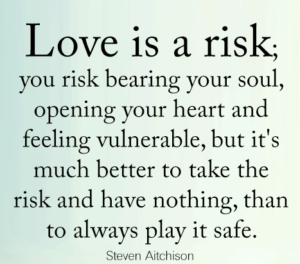
Hareem wrote in to Elder Wisdom Circle from West London, England, distressed about the end of a tumultuous relationship. She had written in previously to express her concerns over how her boyfriend was not being the most supportive—asking for permission to flirt with other girls, not calling her when she said she was having a bad day, and blocking her when they got into arguments. She then followed up with Elder DanRay, who had replied to her previous message, to tell him that she and her boyfriend had broken up after he had cheated on her. After the breakup, she told her mother that she wanted to die. Her mother recommended that she go to therapy.
Elder DanRay wrote back to Hareem, offering his guidance around the subject of love. He said there are difficult things in life we must learn to accept, and that the price of love is making yourself vulnerable and therefore able to be hurt by someone. He said he understands what it’s like to experience love and loss, as he was married for 25 years to a woman who then died of cancer, and reminded her that it was better that she had loved and lost than if she were to not have loved at all. The Elder urged Hareem to not allow the men in her life to define her or her happiness—she shouldn’t allow Malakai’s behavior to make her feel any less worthy of love, and seconded her mother’s suggestion of finding a therapist to help Hareem with her feelings.
I interviewed Hareem after she’d received Elder DanRay’s advice, and she shared with me how much of a difference it made for her. She came across EWC after searching online for advice centers, and said she still uses the EWC after her follow-up correspondence with DanRay. Despite the level of stress she had been experiencing, the Elder’s advice calmed and grounded her; having the perspective of another person, especially someone older and wiser, helped to clear up the accumulation of anxious thoughts in her mind. She admitted that the advice wasn’t what she wanted to hear but was what she needed to hear, and felt that she was receiving advice from someone who knew what was right for her at a time when she felt lost and hopeless.
After Elder DanRay had a chance to read Hareem’s feedback, he shared with me what motivates him to help strangers with their problems. He explained that he’s been told he has a gift for listening and giving advice and feels that it’s a gift for him to know that he’s helped someone. It wasn’t one life event that made him feel qualified to be called an Elder, but rather all of them, as he’s been through romantic relationships, raised three children, had a long career with ups and downs, and dealt with aging parents. For this advice-seeker, DanRay drew upon his experience in romantic relationships, and his knowledge that it’s healthy to let go of ones that don’t work out. He was delighted to hear that sharing his perspective gave Hareem the confidence to move forward.
Analysis Paralysis
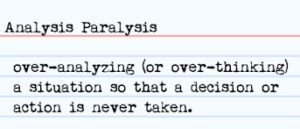
Florence reached out to Elder Wisdom Circle in mental anguish. She expressed that she was suffering from constantly overthinking. She would cry over little things, and put way too much pressure on herself. In her words, she would torture herself with harmful thoughts, and felt she had no better way of managing her stress. She wondered if she was depressed, or just overwhelmed with stress.
Elder KMF wrote back to Florence with compassion and thoughtfulness. As someone who also had a habit of overthinking, the Elder said that her thoughts ceased being constructive when she found herself in a state of “analysis paralysis.” The Elder asked Florence if this was familiar to her. KMF encouraged Florence to write back and provide more information, as her letter had been somewhat brief. But KMF wondered, did Florence truly feel depressed? If she was suffering from symptoms of depression, she said, only a doctor could help to diagnose her. In the meantime, Florence should, the Elder advised, read an article the Elder shared on healthy mindfulness, and write back to share more on her experience so that the Elder might be of more help to her.
After receiving the Elder’s letter, Florence wrote in to share how grateful she felt for KMF’s advice. Having stumbled upon EWC while searching for help online, Florence was happy to discover a positive outlet for her expressing her concerns. From the Elder’s advice, she learned to find something to divert her attention from whatever she might be overthinking, and felt encouraged by the fact that the Elder wished for her wellness. Unfortunately, before she found EWC, she had been treated by friends like she was overreacting. But after having her exchange with KMF, she felt as though she was building herself back up, and felt much happier.
I shared Florence’s feedback with Elder KMF, and the Elder offered her thoughts on her experience as an Elder. She said that she originally had come across EWC while searching for volunteer opportunities online, and felt that EWC was the perfect match for her. There were two things in her life that made her comfortable claiming the title of “Elder”: The first was knowing a woman named Mary who volunteered at the hospital at which she worked for 15 years. “No job was too small for her,” KMF said of Mary. The second was her experience becoming a grandmother, and the deep and special connection she shared with her grandchildren. On top of that, as a 70-year-old, KMF commented that the good and bad choices she’d made as a young person had helped her to grow into someone who could help others. Upon reading Florence’s letter, the Elder related strongly, and was compelled to share with Florence how she’d learned to manage her overthinking over time, from her experience organizing her thoughts at work, which helped with her practical decision-making. Ultimately, the Elder was honored that her advice had made an impact on Florence’s life.
Sitting Together in a Quiet, Calm Living Room
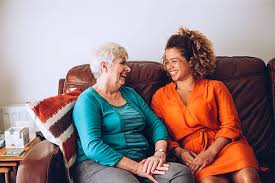 Hope wrote into Elder Wisdom Circle distressed about a situation in her relationship. She confessed that she had cheated on her boyfriend only a few days after they started dating, and was suffering from tremendous guilt as a result. She was convinced that if she told him about it, it would hurt him deeply and might lead to the end of their relationship, and that by not telling him, she was protecting him. The experience she had had with the person she cheated with meant nothing to her; she was in love with her boyfriend and did not want to ruin things by telling him.
Hope wrote into Elder Wisdom Circle distressed about a situation in her relationship. She confessed that she had cheated on her boyfriend only a few days after they started dating, and was suffering from tremendous guilt as a result. She was convinced that if she told him about it, it would hurt him deeply and might lead to the end of their relationship, and that by not telling him, she was protecting him. The experience she had had with the person she cheated with meant nothing to her; she was in love with her boyfriend and did not want to ruin things by telling him.
Elder JanLynn wrote back to Hope after spending some time considering her predicament. JanLynn said that while she believes in honesty with everything, if Hope never intends to cheat again, she should not tell her partner. The only risk was if the person she cheated with were to tell someone about the event, which might lead to the information getting back to Hope’s boyfriend. Ideally, her boyfriend wouldn’t find out through the grapevine; if he were to find out through any means, it would surely end their relationship. JanLynn advised that it’s not necessary for someone to share everything about their past, and if Hope were to share her secret with her boyfriend, he might reveal something as well. She suggested that Hope should only tell her boyfriend if she thinks she might have gotten an STI from the experience.
We interviewed Hope after she received Elder JanLynn’s letter, and she expressed that she was greatly relieved by the Elder’s advice. She hadn’t fully disclosed the situation with anyone else in her life, as she felt embarrassed, and was grateful for the opportunity to remain anonymous through EWC. Hope felt that the Elder was compassionate and understanding in her response, and felt that she knew better what to do and was able to progress, after following the Elder’s advice. After her correspondence with EWC, she found herself able to focus on her goals more and make peace with her past. She expressed gratitude for EWC, as JanLynn had acted as a kind, non-judgmental companion to her in what she said was a very dark time.
Elder JanLynn shared with me that advice-giving comes naturally to her, as an elder. She enjoys giving advice through EWC as it goes towards helping strangers rather than friends or family, the latter of whom rarely ask for it. She says that when writing her responses, she imagines that she and the advice-seeker are sitting together in a quiet, calm living room, and every word of the advice-seeker is being taken in. There was no one experience in her life that made her feel qualified to be an Elder, but rather the whole of her life experience; in this particular exchange, she drew from her experience with her first marriage, where her husband left her repeatedly before divorcing her. She said that she knows what it’s like to lose someone you love, which is why she advised Hope to be careful with her decision-making around her relationship.
Can’t you just picture yourself sitting in Elder JanLynn’s calm, inviting living room of the mind and taking some of the burdens off your mind? What a comforting visual these words create, all possible through the caring actions and words of an EWC Elder.
The Strength Inside to Resolve the Issue

Sandy wrote in to Elder Wisdom Circle deeply distressed about her relationship. Her boyfriend of seven years, with whom she had a daughter, broke up with her, saying that he didn’t love her anymore. He blamed her for his feelings, yet Sandy soon found out that he had cheated on her, and even impregnated his other partner. Sandy was beside herself, fearful of having to start her life over again and raise her child by herself. At the same time, she felt mixed feelings of both wanting her boyfriend back and resenting him for what he had done.
Elder June-Bug wrote back to Sandy with comforting words. If Sandy was truly struggling with harmful ideation to herself, it was important that she reach out to a suicide prevention hotline or mental health professional. There would be brighter days ahead, the Elder said, if Sandy could just hang in there. That being said, the feelings she was going through were valid, and she should give herself the space she needs to feel them. It was natural for her to feel conflicted towards her boyfriend after what he did. Then, she should remember that if she sought to win him back, she should expect the same infidelity she had just experienced with him. She deserved someone far better, and for the moment, she should devote herself to caring for her daughter and to healing.
I interviewed Sandy after she received June-Bug’s advice, and she shared with me how greatly it had helped her. She shared that she had been thinking of harming herself, and that the Elder’s words really helped her to move through those feelings. Taking the Elder’s suggestions to heart, Sandy paid attention to her anger, sat with her feelings, and allowed herself to feel them in her body until they passed. She said they never quite went away 100%, but they also don’t feel the same as they did when the incident was fresh. Six months after her exchange with June-Bug, she was still working on accepting things. But after grasping June-Bug’s wisdom, Sandy realized that if she had let her anger take control of her, she may no longer be alive. She had sought advice from her best friends before reaching out to EWC, and the Elder’s support made her feel as though someone actually cared about her.
As a retiree, June-Bug shared with me that volunteering with EWC gave her the opportunity to feel connected with others in a way that feels meaningful. She expressed that she’s currently on a journey of deep self-reflection, in which she has gained insight into her own personality type, and as a result, better understands how she gets in the way of her deeper intentions. That concept is one she hopes to impart to advice-seekers. As a 20- to 30-year-old, she says that she didn’t know her true self-worth, and reminds readers that the voice inside your head is definitely not your best friend. In regards to Sandy, the Elder said that she had the strength inside of her to resolve the issue; the only thing she needed was the courage to be vulnerable and take the risk. If she took those measures, she would at least have the reward of knowing that she stood up for herself and did her best.
How many of us need someone to help us realize our self-worth? How many of us assume that little voice inside us always has our best interest at heart? Elder June-Bug has provided us an excellent dose of wisdom and some great advice to guide Sandy (and all of us) on our journey.
Stay Present in the Moment
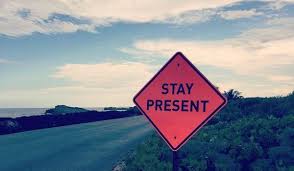
Shirley wrote in to Elder Wisdom Circle looking for help with her low self-esteem and inability to make friends. She had recently moved into a dormitory, and despite being surrounded by people her age, was struggling to not focus on past experiences of having been bullied, or the idea that she was socially awkward. The sight of other girls hugging each other or being too physically affectionate made her uncomfortable, and she wondered if there was something wrong with her because of that. But mostly, she was worried about all of these things getting in the way of her ability to make friends.
Elder Dot wrote back to Shirley, responding carefully to each of her concerns. It was important that Shirley understood that she was someone worth knowing and worth being friends with. If she chose to stay present in each moment, these ideas from the past that came from how she’d been treated wouldn’t cloud her image of herself as much. Dot suggested that Shirley look into joining clubs related to her interests to meet people with which she shared a common ground. She noted that there was nothing wrong with physical affection making her uncomfortable, as individual comfort levels around such behavior often comes from how you were raised; it could also be genetic, Dot said. All things considered, if Shirley was really struggling with her self-esteem, she might consider seeing a therapist—but at the same time, should take the risk of putting herself out there to try meeting new people.
I intervierwed Shirley after she received Elder Dot’s advice and she expressed much relief. She said that the Elder’s advice had greatly helped her in that it made her feel supported and validated. Dot’s advice to “stay present in the moment” had an effect, as Shirley was then able to pay better attention to others’ reactions rather than just the ideas in her own head of what they were thinking. After receiving the Elder’s advice, she still struggled to make friends, but felt more confident in trying. She better understood that making herself vulnerable and putting herself out there to make new friends was a risk worth taking. Over time, she formed a group of friends.
After getting the chance to read Shirley’s feedback, Elder Dot shared with me what inspired her to become an Elder. She said that while there may not be a reason behind the challenges we face in life, if she’s able to use what she’s learned from her own challenges to help others, it gives her purpose. In this particular exchange with Shirley, Dot drew upon her experience overcoming her fears as an adult—she took swim classes and a public speaking course to help train her to take healthy risks, and they both greatly improved her life. She wished to impart to Shirley the same confidence she gained from those experiences. When she read that Shirley had followed her advice and taken the risk, she said she was so proud of her for making the effort and not giving up until she succeeded.
Experience is often the best teacher, and what better way to share life-lessons learned then becoming an Elder. All older adults have the opportunity to become an ‘Elder’ it need not be a formal position like the Elder Wisdom Circle. Think of the positive impact on the world if we had more inter-generational dialogue.
Seek Friendships to Increase the Chances of Romance

Peter wrote in to Elder Wisdom Circle concerned about his ability to be in a relationship—primarily with a romantic partner but also in the sense of making friends. He tried meeting someone online but to no avail. As a college student, he was told that college wasn’t a good place to meet people—and found that any relationships he did form tended to expire after only a few months. He feared there was something seriously wrong with him, and that something like narcissism or perfectionism was getting in the way. He had also kept these feelings from his psychologist.
Elder PJH wrote back to Peter with consolation. He explained that in the modern age, women over men were often more successful in choosing a partner. And, unless a man has grown up with sisters, it takes a while for them to learn the ropes of understanding women. But rather than focus on forming a romantic partnership, the Elder recommended that Peter join a club, church group, or volunteer organization. In doing so, he could develop friendships, and thereby have the opportunity to show others that he could be a sociable, friendly, reliable person. This would inevitably lead to a potential romantic partner being drawn to him. But while the Elder generously offered these suggestions, he also advised that Peter share his feelings with his psychologist, or else there would be no way for them to help him.
I interviewed Peter after he’d received the Elder’s advice, and he shared with me how helpful it had been for him. He hadn’t reached out to anyone before contacting EWC. Peter did end up taking the Elder’s advice, and shared his situation with his psychologist. The psychologist recognized Peter’s behavior as being symptomatic of social anxiety, and recommended befriending others (rather than seeking a romantic relationship) as a way of gaining a social education—which fell perfectly in line with what Elder PJH had suggested. Peter was then convinced that this was the best solution for him. He also expressed that he had felt better as soon as he wrote down his concerns, but that the Elder’s response was very gratifying.
Sharing with me the personal experiences from his life that made him feel qualified to call himself an Elder, Elder PJH said that he had worked as a college counselor before retiring—which gave him confidence in offering advice to young people. However, it is his goal in every letter to remind the advice-seeker that he is not an expert, but is rather offering the perspective of an elder. He claimed that he had had his prejudices as a young person that caused him to behave ignorantly, but that in his old age, he’s refined many of his ideas and has a better understanding of what’s important. EWC, he feels, gives young people a healthy jump start to their improving personal outlooks on life. He felt supportive towards Peter’s thoughtful approach to his problem, and wished to simply repeat his advice of seeking friendships to increase his chances of romance.
How many of us have been in a place at one time or another where we felt challenged to find a romantic partner? Aren’t some of the best romantic relationships we know of built on friendships first?
I Want to Choose a Completely Different Life
 Leeah reached out to Elder Wisdom Circle in a letter he entitled, “I want to choose a completely different life.” He was in his third year in law school, and confessed that he had been feeling unhappy with his circumstances for years. These feelings had been following him not just through his time at school, but for his entire life, he said. And, more recently, they had led to him experiencing suicidal ideation—something also fueled by the depression he felt in response to stressing over his exams. He had an idea to follow his dreams by freezing his education and traveling to China, but was unsure if he should.
Leeah reached out to Elder Wisdom Circle in a letter he entitled, “I want to choose a completely different life.” He was in his third year in law school, and confessed that he had been feeling unhappy with his circumstances for years. These feelings had been following him not just through his time at school, but for his entire life, he said. And, more recently, they had led to him experiencing suicidal ideation—something also fueled by the depression he felt in response to stressing over his exams. He had an idea to follow his dreams by freezing his education and traveling to China, but was unsure if he should.
Elder GranJan wrote back, sharing some wise and practical advise for Leeah. She proffered that chasing one’s dreams is important, but it would be more sensible for him to look at the bigger picture. Leeah was approaching a very valuable achievement in getting his law degree—something that would potentially provide him with financial security upon graduation. GranJan advised that freezing his education and taking the leap to go to China without knowing the language, having a job, or having a place to stay could lead to him becoming lost in a way that he might not be able to recover from so easily. Instead, GranJan said it would be likely better for Leeah if he were to grit his teeth and finish his degree before diving into the unknown.
I interviewed Leeah after he received GranJan’s reply. He said that he hadn’t yet solved his dilemma, but that the Elder guided him to think about the situation in a more realistic way. He hadn’t reached out to anyone before writing to EWC, but after receiving GranJan’s advice, ran it by his mother, who affirmed her point of view. He admitted that it wasn’t what he wanted to hear exactly, but acknowledged that it came from a place of intuition and intelligence. Ultimately, he chose to follow his own intuition, and allowed the Elder’s words to help him become more patient with himself in the decision-making process.
When asked what motivates her to help other people with their problems, GranJan answered that it’s special to her to connect with a young person and be able to share in their life. In her volunteering at EWC, she draws upon her experience as a psychotherapist—though finds it refreshing to be able to offer direct advice, where in the past she would refrain from doing so. She’s learned over the past 60 years of her life, however, that it doesn’t help to tell someone what they already know, and is best to have patience with someone who might be sabotaging themselves. It’s her priority to show sympathy rather than to preach, and to frame her advice in the context of her own mistakes in order to do so. In the end, the Elder was grateful that Leeah had considered her advice, and wished that she could have a more in-depth conversation with him.
Sometimes when we receive advice from a trusted stranger we often assume it will vary greatly from what a parent might suggest. While GranJan’s advice was not what Leeah wanted to hear he knew it was based on GranJan’s (Elder) intuition and intelligence.
Life is about fine-tuning
 Zoe reached out to Elder Wisdom Circle feeling confused and disheartened. She began by saying that her life was a normal one, where she got average grades and had little drama, but something didn’t feel right. She felt disconnected and unhappy. It seemed as though everyone around her had bright plans for the future except for her, and she was afraid to admit that to anyone. Maybe it was because she was always caught up in her imagination and fantasy scenarios, she thought, but regardless, it felt like her head was a mess.
Zoe reached out to Elder Wisdom Circle feeling confused and disheartened. She began by saying that her life was a normal one, where she got average grades and had little drama, but something didn’t feel right. She felt disconnected and unhappy. It seemed as though everyone around her had bright plans for the future except for her, and she was afraid to admit that to anyone. Maybe it was because she was always caught up in her imagination and fantasy scenarios, she thought, but regardless, it felt like her head was a mess.
Elder Gma-GG wrote back to Zoe, teeming with positivity. It was so important, Gma-GG said, that Zoe change the way she spoke to herself in her head—that she avoid telling herself that she’s a procrastinator, that her head was a mess, or that she’s not really living her life. Instead, she could write out a list of affirmations and read them several times a day to boost her mood. If she was able to improve her self-talk, she could learn to coach herself through difficult situations, addressing herself by name, identifying her feelings, and highlighting her good qualities. Gma-GG had learned from an online course she was taking at Yale that 40 percent of our own happiness comes from our thoughts and actions, which are under our control. Zoe could focus on a list of advice on how to improve one’s happiness that Gma-GG provided, which included suggestions to spend money on experiences, not things, to do kind things for others, and to exercise for 30 minutes a day.
I interviewed Zoe after she received her letter from Elder Gma-GG, and she said that when she reached out to EWC, she felt confused and empty, and that her thoughts were shattered. She had felt lost from her true self. Especially because mental health is not prioritized in her home city of Lahore, Pakistan, she hadn’t reached out to anyone else about her dilemma. But when she heard back from EWC, she was deeply touched. She said that Gma-GG’s advice helped her to let go of her negative thoughts, and that she began a habit of writing in a journal. This led her to discover that she had a talent for writing, and she began writing poems and prose. In her words, she pushed herself out of the dark and allowed the positivity to come. She stopped blaming herself for things that were out of her control, and became more connected to reality through meditation and her journaling.
In my interview with Gma-GG, she shared that she gets far more out of volunteering with EWC than she gives. She had learned the most from the major milestone in her life of becoming a grandmother, and helping out in raising her son’s four children. This, along with other experiences she’d had later in life, transformed her from the person she was in her youth—someone who thought they could find happiness in material success—into someone who now knows that true happiness comes from human connection. To Zoe, she expressed the importance of knowing that no one is alone in this life, and that any problem can be solved. “Life is about fine-tuning,” she said. “If one thing doesn’t work, try another, and when the student is ready, the teacher will come.”
Life is about fine-tuning, what a simple way to describe a philosophy that also paints a vibrant picture in our mind. It often feels like we are tweaking or tuning some gadget or device in our lives, but how often do we think about the small fine-tuning we could do within ourselves.
Search
Recent Conversations
- It Was Okay to Move On
- Focus on Yourself and Look at the Bigger Picture
- The Price of Love is Making Yourself Vulnerable
- Analysis Paralysis
- Sitting Together in a Quiet, Calm Living Room
- The Strength Inside to Resolve the Issue
- Stay Present in the Moment
- Seek Friendships to Increase the Chances of Romance
- I Want to Choose a Completely Different Life
- Life is about fine-tuning
